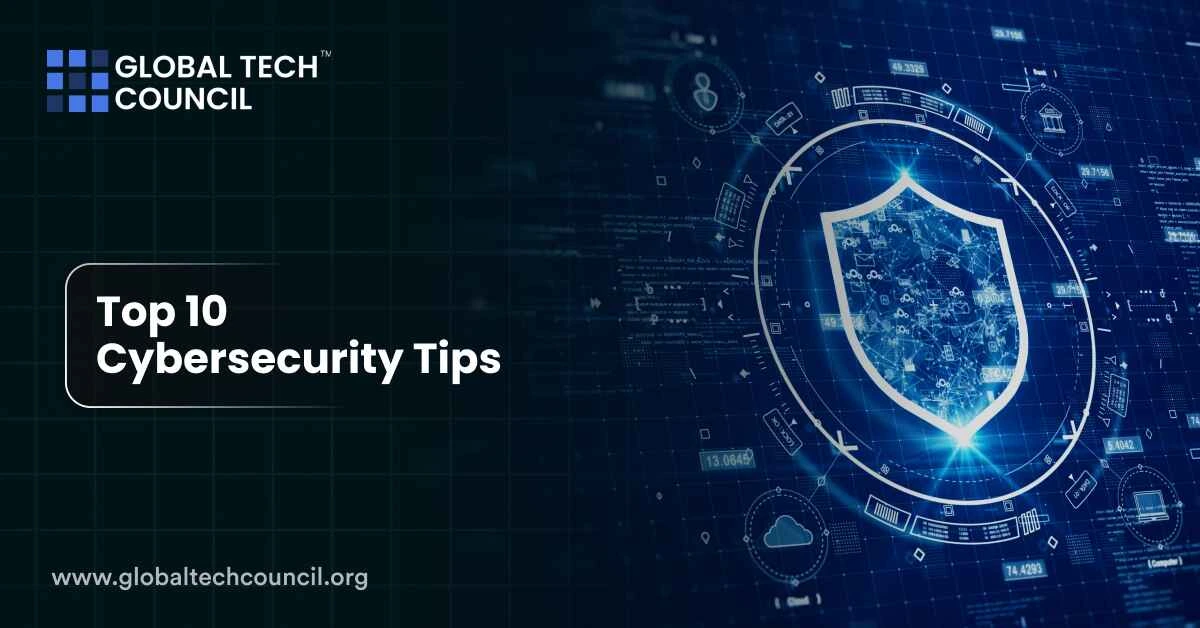
If you want to protect your digital life, here’s the answer you’re looking for: follow these top 10 cybersecurity tips to keep your personal information, devices, and business safe. From using strong passwords to staying aware of the latest threats, these tips will help you stay one step ahead of hackers and scams.
This article shares the most important cybersecurity best practices in plain language. Each tip is easy to understand and apply to your daily online activities.
1. Use Strong, Unique Passwords
A weak or repeated password is like leaving your front door open. Create strong passwords with a mix of letters, numbers, and symbols. Avoid using the same password across multiple accounts. Consider using a password manager to generate and store unique passwords.
2. Enable Two-Factor Authentication (2FA)
Two-factor authentication adds an extra layer of security. Even if hackers get your password, they still need the second factor (like a code sent to your phone). Turn on 2FA wherever possible, especially for email, banking, and social media accounts.
3. Keep Software Updated
Outdated software is a common entry point for cyberattacks. Regularly update your operating system, apps, and antivirus tools. Updates often fix security holes that hackers can exploit.
4. Beware of Phishing Scams
Hackers use fake emails and messages to trick you into giving them personal information. Always verify the sender, don’t click on suspicious links, and be cautious with attachments. Remember: legitimate companies won’t ask for sensitive info via email.
5. Back Up Your Data Regularly
Ransomware attacks can lock you out of your own files. Protect yourself by backing up your data to an external drive or secure cloud service. Make it a habit to back up at least once a week.
6. Use Antivirus and Firewall Protection
Antivirus software and firewalls help block malicious software and unauthorized access. Keep them updated and run regular scans to catch threats early.
7. Limit Personal Information Shared Online
Hackers can use your personal info to guess passwords or answer security questions. Be mindful of what you share on social media. Keep your profiles private and avoid oversharing.
8. Use a VPN on Public Wi-Fi
Public Wi-Fi networks are easy targets for hackers. A virtual private network (VPN) encrypts your internet connection, making it harder for hackers to steal your data.
9. Protect Your Mobile Devices
Phones and tablets store sensitive information, too. Use a strong passcode, enable remote wiping, and keep your device’s software updated. Only install apps from trusted sources.
10. Stay Informed About New Threats
Cybersecurity is always evolving. Stay informed about the latest scams and best practices by following reputable security blogs, news, or official government resources.
Top 10 Cybersecurity Tips and Their Benefits
| Tip | Benefit |
| Use Strong, Unique Passwords | Harder for hackers to guess or crack |
| Enable Two-Factor Authentication | Adds an extra layer of protection |
| Keep Software Updated | Fixes security vulnerabilities |
| Beware of Phishing Scams | Prevents giving info to scammers |
| Back Up Your Data | Safeguards against ransomware attacks |
| Use Antivirus and Firewall | Blocks malware and unauthorized access |
| Limit Personal Info Shared | Reduces risk of identity theft |
| Use VPN on Public Wi-Fi | Protects data on unsecured networks |
| Protect Mobile Devices | Keeps sensitive data safe on-the-go |
| Stay Informed About Threats | Helps you adapt to new risks |
Prioritizing Cybersecurity Tips
Cybersecurity is a journey, not a one-time fix. Here’s how to prioritize:
- Start with passwords and 2FA: These are your first lines of defense.
- Update your software: An easy way to fix security holes.
- Educate yourself: Knowledge is power. Learn to spot phishing scams and follow good online habits.
- Expand with VPNs and mobile protection: These add strong security, especially on-the-go.
Key Cybersecurity Tips – Personal vs Business Use
| Cybersecurity Tip | Personal Users | Business Users |
| Strong Passwords | Use password managers for multiple accounts | Enforce password policies and educate staff |
| Two-Factor Authentication | Set up on banking, email, social media | Mandate 2FA for all company systems and apps |
| Software Updates | Enable automatic updates on devices and apps | Develop patch management strategy across systems |
| Phishing Awareness | Learn to recognize suspicious emails and links | Conduct regular phishing simulations and training |
| Data Backups | Use cloud or external drives | Implement centralized, automated backup solutions |
| Antivirus and Firewall | Use reputable antivirus on personal devices | Deploy network-wide security systems |
| Limited Personal Info Online | Avoid oversharing on social media | Control data exposure and customer information |
| VPN on Public Wi-Fi | Use VPN when connecting in public places | Provide secure VPNs for remote workers |
| Mobile Device Security | Lock devices, use app store downloads | Enforce MDM policies and remote wipe capabilities |
| Stay Informed | Follow cybersecurity news and best practices | Join threat-sharing communities and update plans |
Next Steps for Professionals
If you’re serious about cybersecurity, consider earning a certification. The Deep Tech Certification by the Blockchain Council explores cutting-edge technologies and how to secure them. The Data Science Certification teaches you how to analyze data and identify threats. The Marketing and Business Certification can help you communicate security risks to your team and clients.
Conclusion
Cybersecurity is a shared responsibility. By following these top 10 tips, you can protect your personal and business data from evolving threats. Remember: staying secure is an ongoing process. Stay informed, stay alert, and take action today.